Z408 Pure Nickel Cast Iron Electrode AWS ENiFe-CI: Premium Welding
Industry Trends and the Demand for Advanced Cast Iron Electrodes
The global industrial landscape, particularly in sectors such as petrochemical, metallurgy, water supply & drainage, automotive, and heavy machinery, continues to rely heavily on cast iron components due to their excellent machinability, damping capacity, and wear resistance. However, the inherent brittleness and complex microstructure of cast iron, particularly under thermal stress, present significant challenges during repair and fabrication welding. Traditional welding methods often lead to issues such as severe hardening of the heat-affected zone (HAZ), solidification cracking, and poor machinability of the weld deposit.
Recent industry trends indicate a strong demand for specialized welding consumables that can overcome these challenges, ensuring the longevity and structural integrity of critical cast iron infrastructure. This demand is further amplified by increasing focus on circular economy principles, where repair and refurbishment of expensive cast iron parts are preferred over replacement to reduce operational costs and environmental impact. High-nickel electrodes, particularly those conforming to AWS ENiFe-CI standards, are at the forefront of this evolution, offering superior metallurgical properties for diverse cast iron applications. Leading this innovation is the Z408 Pure Nickel Cast Iron Electrode AWS ENiFe-CI, engineered to meet the stringent requirements of modern industrial repair and fabrication.
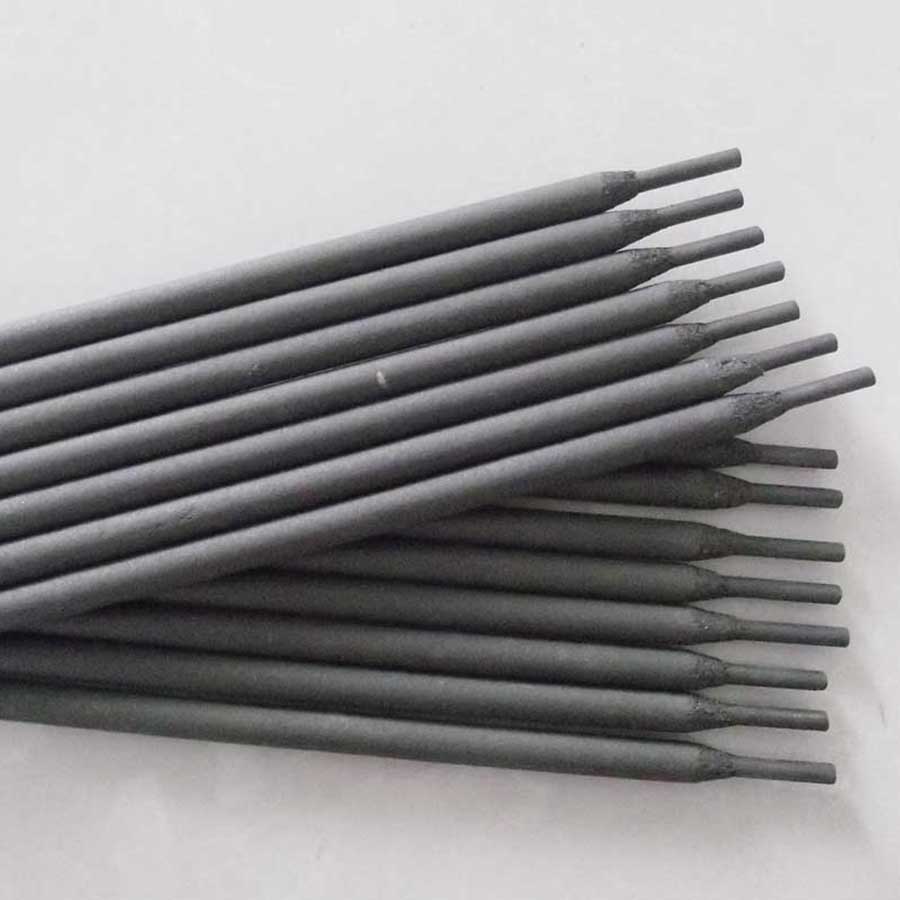
Manufacturing Process of the Z408 Pure Nickel Cast Iron Electrode
The production of a high-performance electrode like the Z408 Pure Nickel Cast Iron Electrode AWS ENiFe-CI involves a meticulously controlled, multi-stage manufacturing process designed to ensure consistent quality, superior arc characteristics, and optimal weld properties. Our adherence to international standards like ISO 9001 and ANSI specifications throughout the entire process guarantees product reliability.
Schematic Steps of Manufacturing:
- Core Wire Preparation: High-purity nickel wire, meeting stringent metallurgical specifications for chemical composition and mechanical properties, is selected. This wire undergoes a series of drawing and annealing processes to achieve the precise diameter and surface finish required for optimal flux adhesion and electrical conductivity. This nickel core is crucial for ensuring the ductile weld deposit characteristic of pure nickel electrodes.
- Flux Formulation and Mixing: The proprietary flux coating is a complex blend of mineral and chemical components. Key materials include carbonates (for CO2 shielding gas), silicates (for slag formation and arc stability), deoxidizers (e.g., ferrosilicon, ferromanganese), and binders. These ingredients are precisely weighed, pulverized to a fine powder, and thoroughly mixed to ensure homogeneity. The exact formulation dictates the electrode's arc characteristics, slag detachability, and the metallurgical properties of the weld metal.
- Extrusion: The prepared flux mixture is then compressed around the core wire using high-pressure extrusion presses. This process ensures a uniform and concentric coating thickness along the entire length of the electrode. Precise control of extrusion parameters is vital to prevent eccentricity, which can lead to erratic arc behavior and inconsistent weld quality.
- Drying and Baking: After extrusion, the electrodes undergo a controlled drying and baking process in specialized ovens. This step removes moisture from the flux coating, preventing hydrogen-induced cracking in the weld metal. The baking temperature and duration are carefully calibrated to ensure the flux adheres firmly to the core wire and achieves its optimal chemical and physical properties.
- Finishing and Inspection: Once baked, the electrodes are branded and subjected to rigorous quality control checks. This includes visual inspection for defects, measurement of dimensions (diameter, length, coating eccentricity), and critical performance tests such as arc stability, slag removal, and weld bead appearance. Adherence to AWS A5.15 standards, specifically for ENiFe-CI classification, is verified at this stage.
- Packaging: Finally, the electrodes are packaged in moisture-proof, vacuum-sealed container111s or robust cartons to protect them from environmental degradation during storage and transport, ensuring they reach the end-user in optimal condition. This packaging is designed to maintain the integrity and service life of the product.
This meticulous process ensures that each Z408 Pure Nickel Cast Iron Electrode AWS ENiFe-CI delivers consistent performance, extended service life, and superior metallurgical properties critical for demanding applications in target industries like petrochemicals (for pump housings, valve bodies), metallurgy (for furnace components, mill rolls), and water supply & drainage (for pipe repairs, manifold fabrication), offering distinct advantages in terms of energy saving through durable repairs and enhanced corrosion resistance.
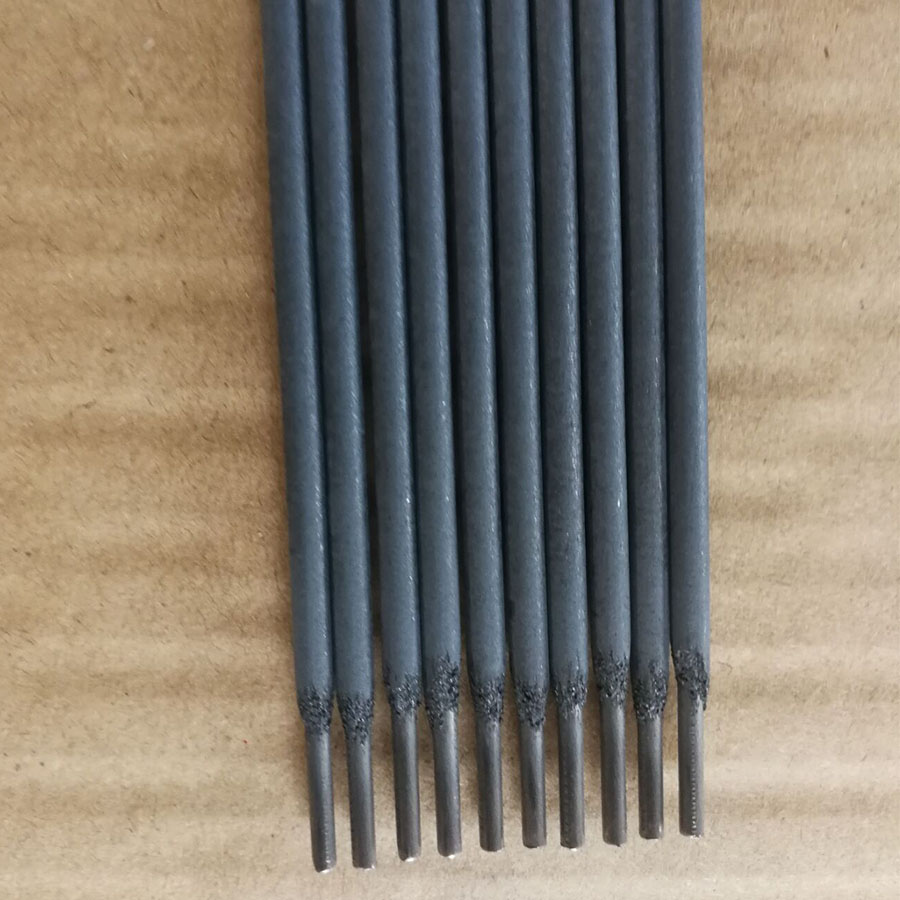
Technical Specifications and Parameters
The Z408 Pure Nickel Cast Iron Electrode AWS ENiFe-CI is characterized by its outstanding metallurgical properties and robust performance, making it a preferred choice for critical cast iron welding applications. Below is a detailed breakdown of its key technical specifications, conforming to international standards like AWS A5.15.
Chemical Composition of Weld Metal (%)
| Element | Typical Value | AWS A5.15 ENiFe-CI Spec (Max) |
|---|---|---|
| Nickel (Ni) | 50.0 - 55.0 | 45.0 - 60.0 |
| Iron (Fe) | Remainder | Remainder |
| Carbon (C) | 1.0 - 1.5 | 2.0 |
| Silicon (Si) | 2.0 - 2.5 | 4.0 |
| Manganese (Mn) | 0.5 - 1.0 | 2.5 |
| Sulfur (S) | < 0.03 | 0.03 |
| Phosphorus (P) | < 0.04 | 0.04 |
Typical Mechanical Properties of Weld Metal (Stress Relieved)
| Property | Typical Value | AWS A5.15 ENiFe-CI Spec (Min) |
|---|---|---|
| Tensile Strength | 360 - 420 MPa (52-61 ksi) | 345 MPa (50 ksi) |
| Yield Strength | 220 - 280 MPa (32-41 ksi) | N/A |
| Elongation (in 4D) | 8 - 15% | 2% |
| Hardness (HB) | 160 - 200 HB | N/A (Generally soft and machinable) |
General Welding Parameters
- Welding Positions: All positions (flat, horizontal, vertical up, overhead).
- Current Type: AC or DCEN (Direct Current Electrode Negative). DCEN is generally preferred for deeper penetration and less spatter.
- Preheating: Generally not required for minor repairs on thin sections, but advisable for thicker sections or complex castings (150-250°C) to minimize thermal stress and cracking.
- Post-weld Treatment: Slow cooling and, if possible, stress relief annealing (550-650°C) are recommended for optimal machinability and crack resistance.
- Electrode Diameters Available: 2.5mm, 3.2mm, 4.0mm, 5.0mm.
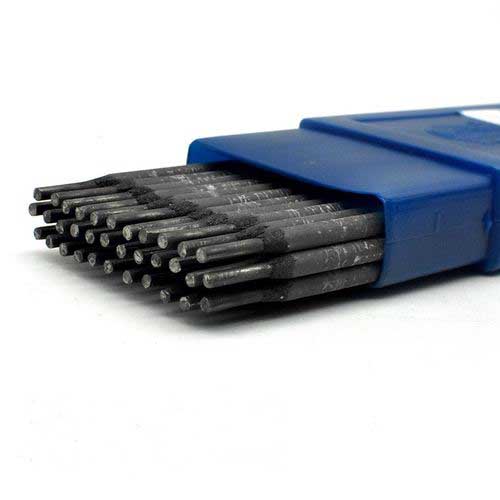
Application Scenarios and Technical Advantages
The versatility and superior performance of the Z408 Pure Nickel Cast Iron Electrode AWS ENiFe-CI make it indispensable across a wide range of critical applications involving various types of cast iron, including gray cast iron, ductile cast iron, and malleable cast iron. Its unique metallurgical properties provide significant technical advantages over conventional electrodes.
Key Application Scenarios:
- Repair of Cast Iron Machinery Parts: Essential for repairing broken or worn components such as engine blocks, gearboxes, pump housings, valve bodies, and machine bases in manufacturing, automotive, and marine industries. The weld deposit's excellent machinability allows for precise finishing after repair.
- Reclamation of Defective Castings: Used to fill shrinkage cavities, blowholes, or other casting defects in newly cast components, reducing scrap rates and improving production efficiency.
- Joining Dissimilar Cast Irons: Effective for welding different grades of cast iron together, or for joining cast iron to steel, in scenarios where a high-strength, ductile, and machinable joint is required.
- Fabrication and Assembly: Utilized in the assembly of new cast iron structures where traditional bolting is not feasible or where a permanently sealed, robust joint is necessary.
- Maintenance in Petrochemical and Water Treatment Plants: For repairing pipes, fittings, and pressure vessels susceptible to corrosion and erosion. The high nickel content of the weld metal contributes to improved corrosion resistance.
Technical Advantages:
- Exceptional Machinability: The pure nickel weld deposit is soft and ductile, making it easily machinable, a critical advantage for post-weld finishing operations. This minimizes rework and ensures repaired components fit accurately.
- Superior Crack Resistance: The high nickel content promotes a ductile, non-hardening weld deposit that can absorb stresses, significantly reducing the risk of solidification cracking (hot cracking) in the weld metal and the heat-affected zone (HAZ) of the cast iron base material.
- Excellent Weld Strength and Ductility: Provides strong, tough, and durable welds that maintain structural integrity even under demanding operational conditions, extending the service life of repaired components.
- Good Color Match: The weld metal provides a reasonably good color match to gray cast iron, making repairs less visible, which is often desirable for aesthetic or heritage applications.
- Stable Arc and Easy Slag Removal: The electrode’s flux coating is engineered for stable arc performance, minimal spatter, and easy removal of the self-peeling slag, contributing to higher productivity and reduced cleanup time.
- Energy Saving and Cost Efficiency: By enabling reliable repairs, the Z408 Pure Nickel Cast Iron Electrode AWS ENiFe-CI eliminates the need for expensive component replacement, significantly reducing maintenance costs and downtime, thus contributing to overall energy efficiency by extending asset lifespan.
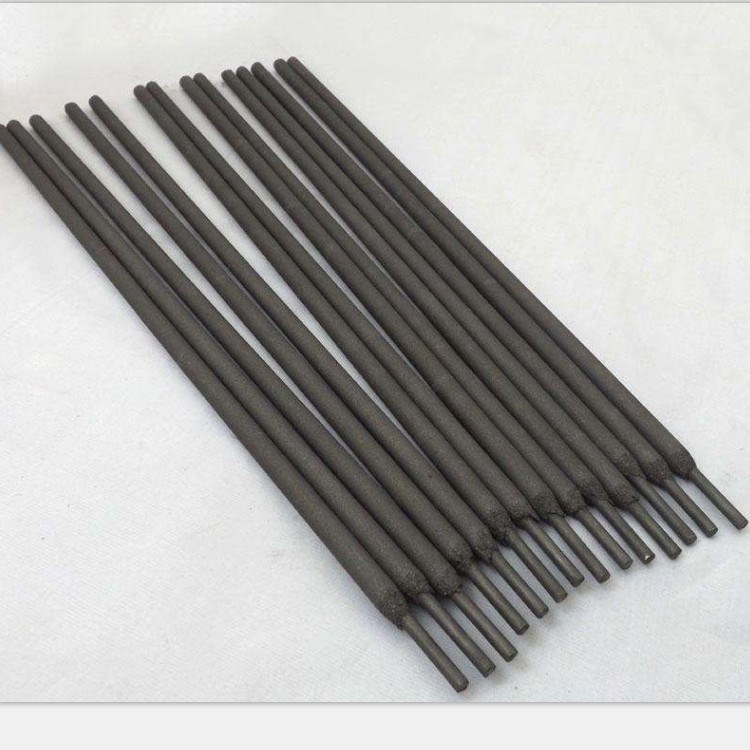
Vendor Comparison: Z408 Pure Nickel vs. Common Alternatives
Choosing the right electrode for cast iron welding is critical for successful repairs and fabrication. While various options exist, the Z408 Pure Nickel Cast Iron Electrode AWS ENiFe-CI stands out for its specific benefits, particularly when compared to common alternatives such as Nickel-Iron (ENiFe-CI) electrodes or Steel (ESt) electrodes.
Electrode Comparison Table:
| Feature | Z408 Pure Nickel (ENi-CI) | Nickel-Iron (ENiFe-CI) | Steel (ESt) |
|---|---|---|---|
| Weld Metal Type | Pure Nickel | Nickel-Iron Alloy (approx. 50% Ni, 50% Fe) | Mild Steel (high dilution with cast iron) |
| Machinability | Excellent (soft, ductile deposit) | Good (slightly harder than pure Ni) | Poor (very hard, brittle HAZ) |
| Crack Resistance | Superior (highly ductile) | Very Good (ductile, compensates for contraction) | Poor (high risk of cracking due to martensite formation) |
| Strength | Moderate to High | High (higher tensile strength than ENi-CI) | High (but brittle) |
| Cost-Effectiveness | Premium (higher material cost, but superior results) | Good (balanced performance and cost) | Low (initial cost, but high risk of failure/rework) |
| Primary Use Case | Critical repairs, high machinability required, good color match. | High-strength repairs, general cast iron welding, balance of strength/machinability. | Non-critical repairs, where hardness and brittleness are acceptable (rarely recommended for cast iron). |
While ENiFe-CI electrodes offer a good balance of strength and machinability, the Z408 Pure Nickel (ENi-CI) electrode provides superior ductility and machinability, crucial for demanding applications where precise post-weld machining is essential, or where the highest degree of crack resistance is paramount. This makes the Z408 Pure Nickel Cast Iron Electrode AWS ENiFe-CI the definitive choice for sensitive and high-value cast iron component repairs, justifying its premium positioning through unparalleled performance and reliability.
Customized Solutions and Application Case Studies
Understanding that every industrial application has unique requirements, we specialize in providing not just a product, but comprehensive welding solutions. Our expertise extends to offering customized support and tailored solutions for the Z408 Pure Nickel Cast Iron Electrode AWS ENiFe-CI, ensuring optimal results for our clients.
Customized Solutions:
- Electrode Diameter & Length: While standard diameters are available, we can produce custom electrode sizes and lengths to meet specific project demands, especially for automated welding processes or confined spaces.
- Flux Coating Adjustments: For highly specialized applications requiring specific arc characteristics or slag properties, our R&D team can work to fine-tune the flux composition, subject to minimum order quantities.
- Packaging Solutions: We offer various packaging options, from standard moisture-proof container111s to bulk industrial packaging, designed to maintain product integrity during shipping and storage, especially for international deliveries.
- Technical Consulting & Training: Our team of welding engineers provides expert consultation on welding procedures, pre-heat/post-weld treatment, and operator training to ensure successful application of the Z408 electrode.
Application Case Studies:
Our extensive experience with B2B clients across diverse industries underscores the reliability and effectiveness of our electrodes. Below are two representative case studies illustrating the value provided by the Z408 Pure Nickel Cast Iron Electrode AWS ENiFe-CI:
Case Study 1: Marine Engine Block Repair
Client: Major International Shipping Company
Challenge: A critical cast iron engine block on a cargo ship developed severe cracks, rendering the engine inoperable. Replacement costs were prohibitive, and downtime was extremely costly.
Solution: Our welding engineers collaborated with the client's maintenance team to implement a precise repair procedure using the Z408 Pure Nickel Cast Iron Electrode. Strict control of interpass temperature and peening techniques were employed to minimize residual stresses.
Results: The repair was completed successfully within 72 hours, significantly reducing the vessel's downtime from an estimated 4-6 weeks for replacement. The weld deposit exhibited excellent machinability, allowing for precise restoration of the engine's critical dimensions. Post-repair non-destructive testing confirmed a sound, crack-free repair, saving the client millions in potential losses and extending the engine's service life by several years. Customer feedback highlighted the electrode's ease of use and the superior machinability of the weld metal.
Case Study 2: Petrochemical Pump Housing Reclamation
Client: Large Petrochemical Processing Plant
Challenge: A newly cast ductile iron pump housing for corrosive chemical transfer showed minor casting defects (porosity) during quality inspection. Scrap rates for such large, complex castings were a major concern.
Solution: We recommended using the Z408 Pure Nickel Cast Iron Electrode due to its superior ductility and resistance to hot cracking, crucial for reclaiming ductile iron. The defects were carefully prepared, and multi-pass welding was performed with controlled heat input.
Results: The pump housing was successfully reclaimed, passing all subsequent hydrostatic and radiographic inspections. The Z408 electrode provided a ductile weld that seamlessly integrated with the ductile iron base metal, preventing localized hardening and ensuring the component's integrity in a corrosive environment. This reclamation saved the client the significant cost and lead time associated with casting a new housing, demonstrating substantial cost-efficiency and reduced environmental impact.
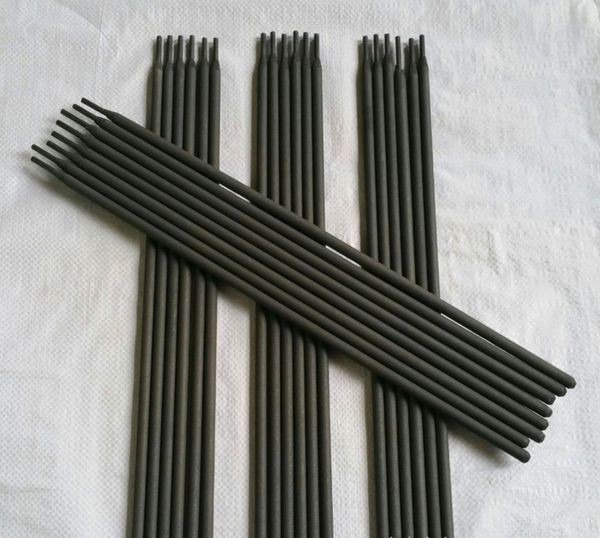
Trustworthiness: FAQ, Lead Time, Warranty & Support
Frequently Asked Questions (FAQ)
Q1: What types of cast iron can the Z408 electrode weld?
A1: The Z408 Pure Nickel Cast Iron Electrode AWS ENiFe-CI is primarily designed for welding gray cast iron, ductile (nodular) cast iron, and malleable cast iron. It can also be used for joining cast iron to steel.
Q2: Is preheating always necessary when using Z408?
A2: For small repairs on thin sections (e.g., less than 5mm), preheating might not be strictly necessary. However, for larger or thicker components, complex castings, or when maximum machinability and crack resistance are desired, a mild preheat (150-250°C) is highly recommended to reduce thermal stress gradients.
Q3: How does the Z408's machinability compare to other cast iron electrodes?
A3: The Z408 electrode produces a pure nickel weld deposit which is inherently soft and ductile, offering superior machinability compared to Nickel-Iron (ENiFe-CI) electrodes and significantly better than steel electrodes. This is a primary advantage for components requiring post-weld finishing.
Q4: What are the typical lead times for bulk orders?
A4: Standard stock items typically ship within 3-5 business days. For bulk or customized orders, lead times usually range from 2-4 weeks, depending on volume and specific requirements. We advise contacting our sales team for precise lead time estimates for your specific needs.
Q5: What is the shelf life of Z408 electrodes?
A5: When stored in their original, sealed, moisture-proof packaging in a dry environment (ideally below 25°C and 50% relative humidity), Z408 electrodes have a typical shelf life of 2-3 years. Proper storage is crucial to maintain flux integrity and prevent moisture absorption.
Lead Time & Fulfillment
Our commitment to supply chain efficiency ensures timely delivery of the Z408 Pure Nickel Cast Iron Electrode AWS ENiFe-CI. We maintain robust inventory levels for standard products, enabling quick dispatch. For large-scale projects or bespoke orders, our production planning is optimized for efficiency, with clear communication on lead times from order confirmation to shipment. We utilize a global logistics network to ensure reliable fulfillment worldwide, adhering to stringent packaging standards to preserve product quality during transit.
Warranty & Quality Assurance
All our welding electrodes, including the Z408 Pure Nickel Cast Iron Electrode AWS ENiFe-CI, are manufactured under an ISO 9001 certified quality management system. We guarantee that our products conform to their published specifications and are free from manufacturing defects. Our warranty covers material and workmanship for a period of 12 months from the date of purchase, provided the products are stored and used according to recommended guidelines. We stand by the quality and performance of our electrodes.
Customer Support
Our dedicated customer support team and network of technical specialists are available to assist with product selection, application guidance, troubleshooting, and post-sales inquiries. We offer comprehensive technical data sheets, safety data sheets, and expert advice to ensure our clients achieve optimal welding results. For immediate assistance or technical consultation, please visit our website or contact our regional support centers. Our goal is to be a trusted partner in your welding operations, offering unparalleled support and expertise acquired from years of service in the industry.
References
- AWS A5.15/A5.15M:2009. Specification for Welding Electrodes and Rods for Cast Iron. American Welding Society.
- ASTM A48/A48M-03. Standard Specification for Gray Iron Castings. ASTM International.
- Gourd, L. M. (1993). Principles of Welding Technology. Edward Arnold.
- The Fabricator. (2018). Welding Cast Iron: Understanding the Challenges and Solutions. FMA Communications.
- ISO 9001:2015. Quality management systems — Requirements. International Organization for Standardization.
-
High-Quality Welding Electrodes 4.0mm*400mm for Industrial Use | Steel Tools ChinaNewsNov.24,2025
-
Explore the Benefits and Uses of 2.6mm Welding Electrode 6013 | Global GuideNewsNov.23,2025
-
Understanding CO2 Welding Wire Price: Global Impact, Trends, and TipsNewsNov.22,2025
-
Top Guide to Welding Wires CO2 – Specifications, Benefits & Industry UsesNewsNov.22,2025
-
Comprehensive Guide to Welding Electrode 6011 – Global Applications & BenefitsNewsNov.21,2025
-
AWS E6013 Welding Rod-HEBEI YUJINHONG TECHNOLOGY CO.,LTD.|All-Position Carbon Steel ElectrodeNewsNov.21,2025


